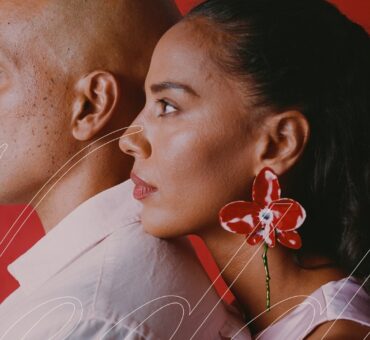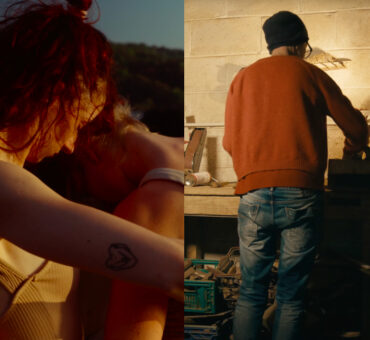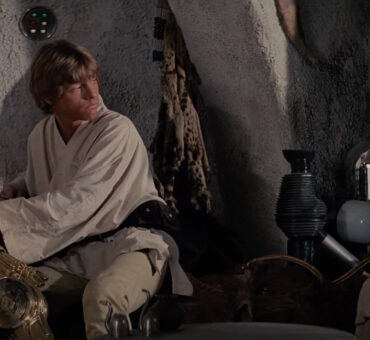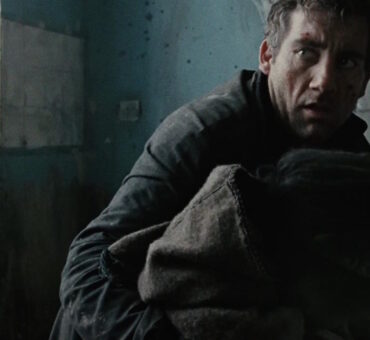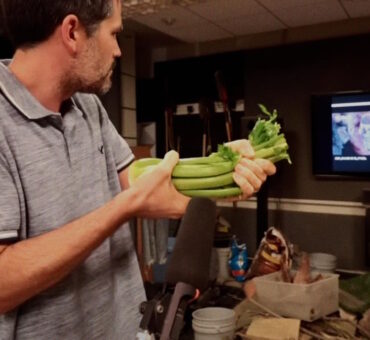When we sat down to talk with Writer/Director Dionne Edwards about her process, the phrase “it’s hard to explain” kept popping up. It speaks to one of the hard truths behind writing—you really just have to do it. So much of the craft is an intuition you build over more than a few mistakes.
“Most writing will come out pretty bad at first and then it just gets better and better,” Dionne told us. “In the meantime, just get it down. I know people who take so long to write anything because they’re scared that they’re going to fail. You can’t be scared. Then you just end up with nothing.”
Dionne is currently in the middle of writing her second feature, and her first is slated for production in early 2021. Her short film We Love Moses got the attention of TIFF and BFI’s London Film Festival, and is currently under license with HBO and Cine+. But, all of this success is built on a mountain of mistakes, which is the true marker of any successful creative.
Dionne was kind enough to chat with us about some of these mistakes, as well as her process for tackling a new project and using her background to write honest characters. So, before you start on that next script, you may want to listen to what she has to say.
Musicbed: Did screenwriting come after you got into filmmaking?
Dionne Edwards: It was actually the other way around. Writing was always accessible to me; it just took pen and paper. It’s easier to do. I had a video camcorder, it was the early 2000s and I was messing around with that. But in uni, you could specialize in either directing, writing, or different departments. I chose writing just because it just came more naturally and was easier. Directing was something I had to learn a bit more and get better at.
Were there some films from when you were younger, that inspired you or influenced you to want to write?
I really loved gangster films. I loved films like Goodfellas, A Bronx Tale, and Casino. I loved Steven Spielberg’s work and films that were completely outside of my world. Then, when I developed my craft a bit more, it was just about looking at what was inside me and my interests.
I wrote a lot of short scripts when I was at college. Then I wrote a really, really terrible feature film, which I was smart enough not to give to anyone, save for my friends [laughs]. But it was really good to write it, have this document, and realize it’s a much bigger beast.
I’m in the middle of writing my second feature, which will be my third script. The second script I wrote is being made into a feature next year, which I’m also directing. So I haven’t actually written that many features. A lot of people say you have to write like 10 million bad feature films before you write a good one. But I did write a lot of bad short films. So I’m hoping that helps.
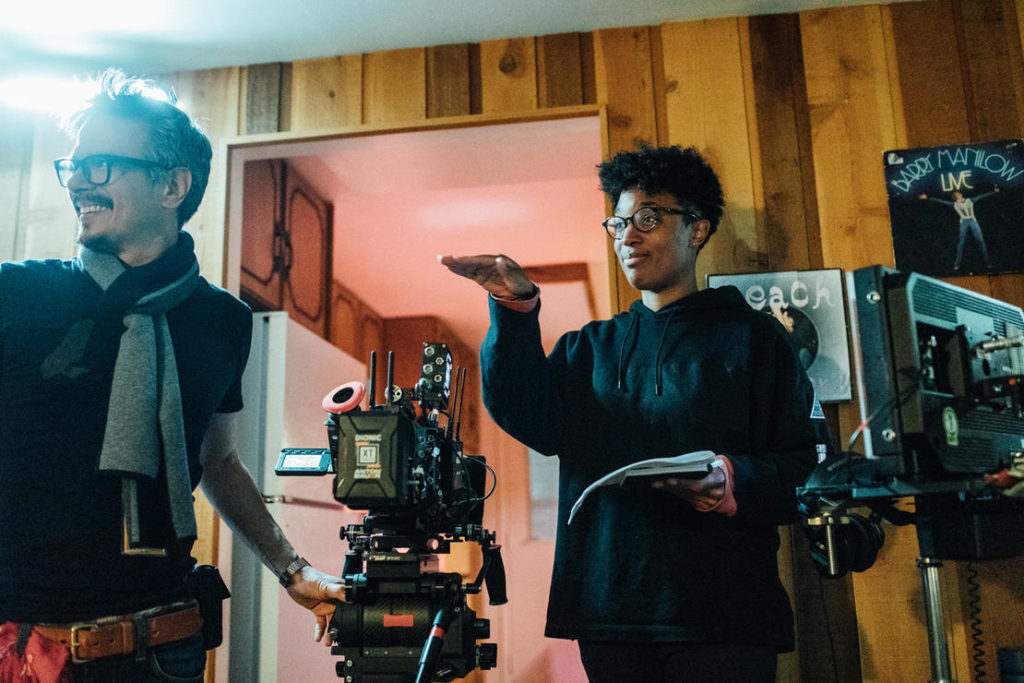
What thing did you notice about those first scripts that were “bad?”
Maybe I’m not giving myself enough credit. Between the age of 16 and 18, I did a course at college and my teacher was really into my scripts and said they were really good. One of the things she said was great about them was the characters, which is interesting. She said they were really realistic.
So I’ve always been good at writing characters and drawing from real life. What was bad about them was just the craft, the structure, and the things that you have to really learn. Back then, I didn’t really have people looking at them. Now I work really closely with a producer who looks at my work. I think it’s really important as a writer to get eyes on your work and get that feedback to push you to do better. I didn’t really have that back then; I was quite scared to show people my work. I wasn’t going deep enough with the characters. I wasn’t being honest with myself about what the characters would do and what they wouldn’t do.
How did you learn to be more honest with your characters?
For my first film, I knew when I was writing it. It’s just a feeling you get. I’m definitely very instinctual. When you’re writing, you’re almost like a parent and your characters are your children, and you’re trying to impose your beliefs or impose some things on them or teach them the way. But, truthful characters are always going to do what they want to do.
If they’re truthful, they’re not necessarily going to have these prescribed things. They’re going to move the story in the direction that they want to go. I try to let the characters tell me who they are. When it’s not honest, it’s when I’m trying to force something on them.
What’s your process for starting to build out those characters?
The first part of my process is finding a process [laughs]. Every new project is just so different. I always say that I forget how to write with every new project. I always think, How the hell do I do this? It’s about finding the best way for that project.
Outlining is really important for me as a writer. I’m not really good at just writing it all out on the page and finding it there. I have to structure it a bit. So that’s usually the main thing that I come back to. But the process really changes from project to project. You have to kind of make it work for each individual one.
When I first start, I just pull everything from my head. I put all these different beats and scene ideas I have onto cards or in a spreadsheet. I move things around, add things. Usually, it’s a terrible mess. Then, I try to get a bit more mathematical with it. That’s where for me, a lot of the writing is done, having to be clinical with it and not impose things on the characters and the plot. Just let it tell you what needs to happen.

What did you learn between your first “bad” script and the second script?
Well, the first one probably could have been made if I would have stuck with it. I just didn’t. I didn’t really relate to the idea anymore and just moved away from it. With the feature that I’m working on now, I could have easily done that as well. When times get hard, it’s easy to pull back and not bother with it.
I learned that it was more so just sticking with it and trying to solve the problems. You run into so many logical issues. It can get really sad because you pull one piece out, and then there’s another problem, you try and move something around it, then there’s another problem. It can be really discouraging when you know it’s not working, but you can make it work if you stick with it.
It’s almost like a “bad” script is simply an unfinished script.
Exactly. If the idea is strong, and you can stick with it, that’s the important thing.
How do you know when an idea is good enough?
It’s a feeling. I’m working on my second feature script at the moment. It’s not good enough in its form right now, but I know the idea is good enough. It’s really hard to explain. I know the idea is strong because I’ve pitched it to people and I’ve seen their eyes light up a little bit. That’s a good way to grasp whether something’s good or not.
If you just give them the bare bones of what the story is, and people are quite excited by it and ask questions, then that’s a good indicator. What I’ve got for it right now in terms of an outline, isn’t quite good enough, and now I have to put all the work in to try and make it good enough.
What was your first script about?
It’s about this Black man from a really tough neighborhood. He’s an ex-gang member and he’s been hiding the fact that he’s a crossdresser. It starts with him coming out of prison. In the story, he’s discovered by his family and it’s about how he deals with that. It’s a bit of a look at trying to free yourself from the concerns of others and how to make some peace with yourself.
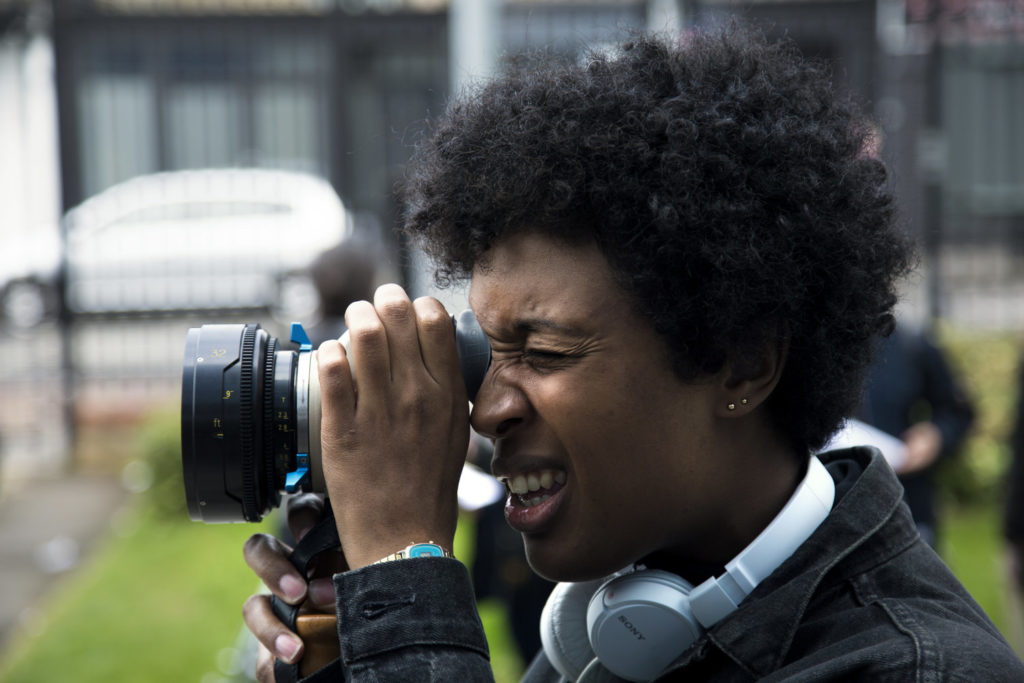
How do you write confidently about a story you haven’t lived?
This one was easier for me, in a sense, because it’s a lot of where my interest lies. I’m friends with a lot of queer people who are involved in different scenes and masculinity is something that I’m interested in. Also, I can easily pull from family and from the way I’ve been brought up and from real life.
I think the key when you’re starting out, to creating believable characters is to use pieces of yourself. There’s a lot of myself in that character, even though I’m very different from him. And you can also look at the people around you, who you’ve grown up with. From there, just let instinct take over. Like I said before, just don’t try to impose too much on them, and the characters will tell you who they are on the page.
I definitely relate to the character in the sense that I’m not your typical woman who dresses like she’s supposed to. I definitely dress in a lot of men’s clothes. As a gay woman navigating the world, I can pull from a lot of that in my writing. I grew up in foster care around a lot of boys in my life and had to see a lot of troubled young men coming in and out of our house. So, it was easy for me to pull from that when writing the main character.
It seems like there’s a balance between letting the characters be themselves, but also pulling from people and experiences you know.
It is definitely a balance. I agree with you there. You’ve got to let the characters take over. A lot of people make the mistake of going word-for-word with their life. Like, “My mom did this, so it’s got to be exactly that way.” You’ve got to allow yourself to be creative and take a detour.
Experience helps, of course. But also, the second feature I’m working on at the moment, that’s a bit more outside of my world. It’s set in New York. Even though it’s a young, British character going to New York, there’s still a lot that I don’t know going into it. It’ll require a lot of research. I think doing really detailed character biographies helps as well. Just trying to think about all the different ways that that character’s lived their life.

Try just scribbling things down, writing pages and pages. It could be just nonsense of what you think has gone on in that character’s life. The more you can go from year zero to now, it’s really helpful. Spew it all out. It doesn’t have to be seen by anyone except yourself. Go through different possibilities. The mum could have said this or the dad could have done that. It helps in terms of making decisions about them, especially if they don’t come directly from your world.
The Safdie brothers are really good examples of people who just dive into research and characters. They actually physically go to the places—they worked jobs in jewelry stores to research Uncut Gems, which is pretty cool. They are really committed to the truth. Do whatever you can do for your own work.
“Just do it” is turning into a recurring theme.
Don’t be hesitant. Just write and allow yourself to write badly because I think that’s so important. Allow yourself to write. Even if you’re just thinking, This is shit, it’s so important to allow flow and to allow it to come out in a really natural way. Learn from your mistakes and analyze what’s going wrong, but you’ve got to allow yourself to be bad.
Most writing will come out pretty bad at first and then it just gets better and better.
In the meantime, just get it down. I know people who take so long to write anything because they’re scared that they’re going to fail. You can’t be scared. Then you just end up with nothing.
Read our conversation with Dionne’s mentor Reinaldo Marcus Green on the Disarming Power of Fiction.































































